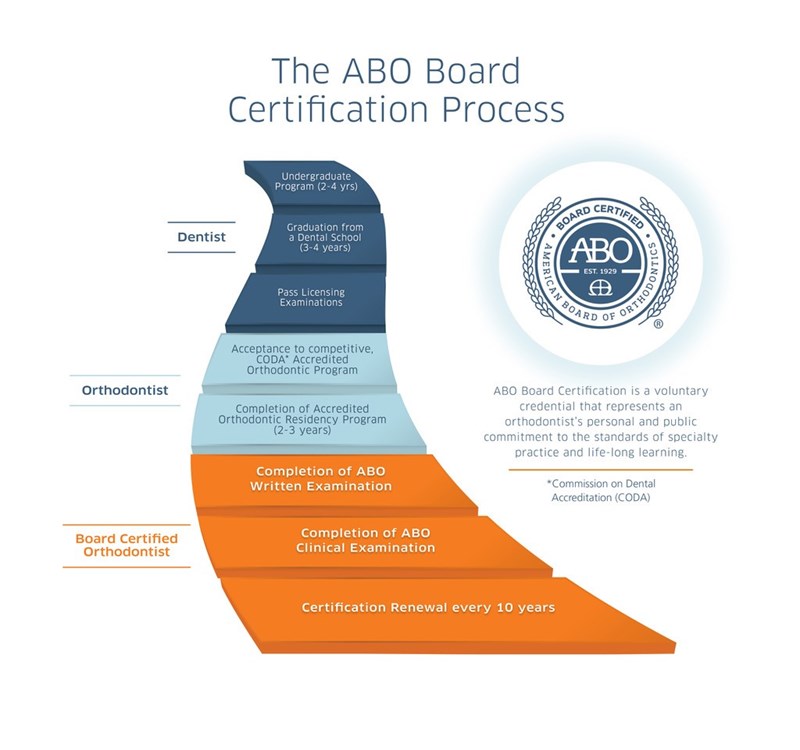licensed vs. board certified
Did you know there is a difference between a Licensed and a Board Certified Orthodontist? Only about 40% of practicing orthodontists in the United States are board certified.
ABO Board Certification is a voluntary credential that represents an orthodontist’s personal and public commitment to the standards of specialty practice and lifelong learning.
Certification as a Diplomate of the American Board of Orthodontics signifies a unique achievement—a large step beyond the two to three years of advanced education required for a dentist to become a specialist in orthodontics. The ABO certification process requires the candidate to demonstrate actual accomplishments in patient care with detailed case reports on the treatment provided for a broad range of patient problems. Board certification is a unique honor following a process by which an individual orthodontist is thoroughly examined by an expert panel as to orthodontic knowledge and clinical skills.
Board Certification is confirmation of an orthodontist’s personal commitment to providing lifelong quality patient care.
An orthodontist is a dentist who has not only completed a graduate program in dentistry to receive their DDS or DMD (Doctor of Dental Surgery or Doctor of Dental Medicine), but has also gone through a competitive residency at a CODA-accredited orthodontic program for an additional 2-3 years to be trained specifically in orthodontics and dentofacial orthopedics.
The ABO Certification process requires the completion of peer-developed, externally validated written and clinical examinations. A Board Certified Orthodontist has reached this level of achievement by pursuing additional voluntary education and ongoing self- assessment.
The American Board of Orthodontics is the only orthodontic specialty board recognized by the American Dental Association and the American Association of Orthodontists.


